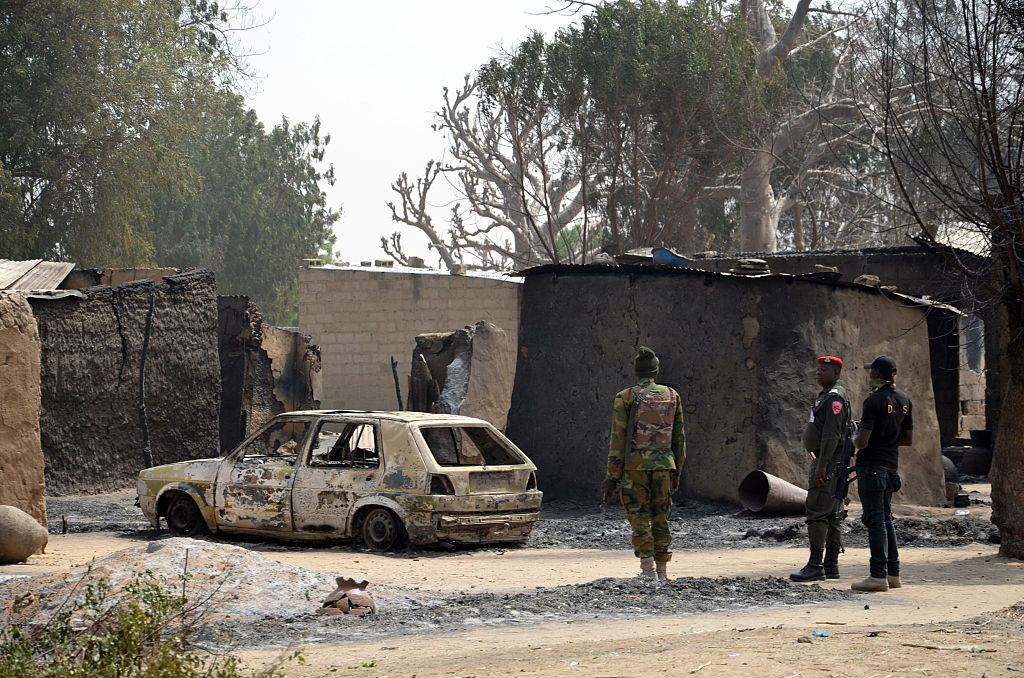ADF STAFF
Nearly 50 people associated with the Islamic State West Africa Province terror group surrendered to the Nigerian Army on May 15, highlighting a recent surge of ISWAP defections and surrenders.
Three members of the group turned themselves in to authorities in Nigeria and Cameroon over 10 days in April. Six more ISWAP members surrendered to the Multinational Joint Task Force (MNJTF) in the Lake Chad Basin around the same time.
Some analysts view the surge in ISWAP defections and surrenders as signs of the group’s faltering cohesion and operational effectiveness.
However, mass defections are unlikely to affect ISWAP as badly as similar actions hurt Jama’atu Ahlis-Sunna Lidda’Awati Wal-Jihad (JAS), according to Malik Samuel, a researcher at the Institute for Security Studies (ISS) Regional Office for West Africa, the Sahel and the Lake Chad Basin. Both ISWAP and JAS are Boko Haram factions.
As Samuel noted in a recent report, JAS leader Abubakar Shekau died in 2021 during an ISWAP attack on his fortress in the Sambisa Forest in Borno State, after which thousands of JAS fighters surrendered to authorities rather than join ISWAP. ISWAP then seized JAS territories, recruited some of its fighters, expanded its own areas of operation, and increased revenue generation.
Authorities are working to persuade more people to leave the group. Officials in Borno State, for example, have encouraged defections through a model that relies heavily on rehabilitation, reconciliation and reintegration techniques.
Nigeria also runs Operation Safe Corridor, which provides secure passage for low-level, low-risk fighters willing to leave terror groups. Military pressure, disillusionment and group fracture also lead to desertions.
But ISWAP has proven resilient and is working hard to prevent desertions. Despite losing members, deaths from ISWAP attacks increased by 27% in 2023 compared to 2022, according to the ISS. The group also began claiming attacks in new areas in Edo, Jigawa, Kano, Kogi, Nasarawa, Niger, Ondo and Taraba states.
ISWAP’s largest attack outside the North East was the 2022 Kuje prison break during which more than 800 inmates escaped. The nighttime raid just outside Abuja featured loud explosions and gunfire.
“We heard shooting on my street,” a local resident told Agence France-Presse. “We thought it was armed robbers. The first explosion came after the shooting. Then a second one sounded and then a third.”
Recent ISWAP operations have featured suicide vehicle-borne improvised explosive devices (SVBIEDs) during a series of attacks on Nigerian forces and the MNJTF in February and March, according to The Jamestown Foundation.
SVBIED attacks by ISWAP in 2020 helped the group overwhelm Nigerian Army outposts in Borno State, forcing government forces to abandon rural outposts and consolidate in heavily fortified “supercamps” around larger urban centers.
To defeat ISWAP, Samuel said, authorities should reevaluate their strategies as the factors that led to mass exits from JAS may not apply to ISWAP.
“Government approaches must continue to encourage defection,” Samuel wrote. “But they should also go beyond depending on disgruntled commanders and fighters. Strategies are needed that tackle the group on various fronts, including disrupting its financing, blocking routes used for recruitment and movement, and having a clear, practical plan that those who desert ISWAP can support.”
Military efforts to contain ISWAP are ongoing.
The Nigerian Army on May 14 killed Mallam Muhammadu, the ISWAP commander in charge of producing IEDs. Muhammadu was killed during a raid on ISWAP hideouts in the Ukuba and Njimia areas of Borno State.
Muhammadu also was believed to be responsible for indoctrinating and recruiting children into suicide bombing, including three of his own children, Nigerian online newspaper Naija News reported.

